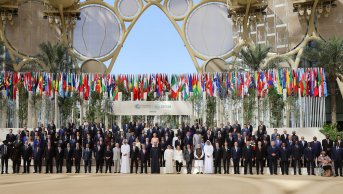The Significance of the Killing of Chechen Leader Ünlü

Ünlü used the title of honorary consul to Turkey from the Chechen Republic, which had declared its (unrecognized) independence in 1991 from Russia. Over the past two years, six people who participated in the Chechen war have lost their lives as the result of gun attacks in Turkey. All six of these people were citizens of the Russian Federation. As for Ünlü, his forefathers were forced to migrate from Chechnya in the 19th century, winding up settling in the Kahramanmaraş town of Çardak. In other words, they were ethnically Chechen Turkish citizens. Ünlü loved Turkey as much as he loved Chechnya. His children, he himself, his father and his grandfather were all born in Turkey. His business was named after the Berit mountain range that is located in Çardak. When he died, he was buried with both the Chechen and the Turkish flags. For all of these reasons, we can say that Ünlü was an ethnically Chechen Turk. It is a very significant development that people can carry out armed attacks on Turkish citizens in the capital of Turkey, Ankara, without fearing reprisal. And if this particular case is not exposed and solved, there is little question that this type of event will continue.
There is a special reason for the date -- May 22 -- on which the armed attack on Ünlü took place.
The attacker originally wanted to carry out the attack on May 21, a symbolic date, dovetailing with the May 21, 1864 end to the war in the Caucasus and the forced separation of the people of the Northern Caucasus from their homeland by czarist Russia, however, was unable to do so for logistical reasons. In recent years, Moscow has been made more and more uncomfortable by the politicization of May 21 “genocide” talk and the “No Sochi” campaigns against the 2014 Sochi Winter Olympics.
And now for some details from the actual murder scene. The killer, someone in his mid-30s, arrived at the second story office at 7:07 p.m. Ünlü was fired on as he sat at his desk, with the first bullet piercing the hand he had raised in defense and lodging in his body. Wasting no time, the killer then ran behind Ünlü, firing the second and third bullets into the back of his neck. The police were later to find three empty shells and two casings at the scene. The third casing remained lodged in Ünlü's body. The expert killer left the office at precisely 7:10 p.m., three minutes after he had arrived. The first video images of the incident were discovered a full seven hours later, at 2:00 a.m. Later, some Mobile Electronic Systems Integration (MOBESE) recordings were found. Due to Turkey's inability to quickly analyze the historic, strategic, political and future-related dimensions of the Ünlü murder, the country remains unaware of the true significance of the incident.
Ünlü was aware that he might be a target of murder. His family was also aware. His wife, after seeing him off every day, would head to the window to watch him get into his car. If he was slow getting into the car, she would worry. His knowledge that he might well be a target for murder one day was also what drove Ünlü to keep a daily journal, written in the Chechen language and using the Cyrillic alphabet. In the journal, he provided minute details about people he had met and topics he had talked about with others.
The purposeful transformation of “Chechnya” and “Chechen” into names that have been muddied and made parallel to “terror” took place after the second Chechen War. In the wake of the recent attacks in Boston, the perception of Chechens and Chechnya became even more negative in the West. In Turkey, sympathy for Chechens and Chechnya was long ago finished off during the first Chechen War. This is why the Turkish press and intellectuals on both the right and the left of the spectrum treated the murder of Ünlü as just one more in a series of murders of Chechens in Turkey. No one approached it as an attack on a Turkish citizen. Turkish politics did not focus much on the incident, either.
Ünlü, buried in his hometown of Çardak, had actually lost his mother just one month before his own death.





